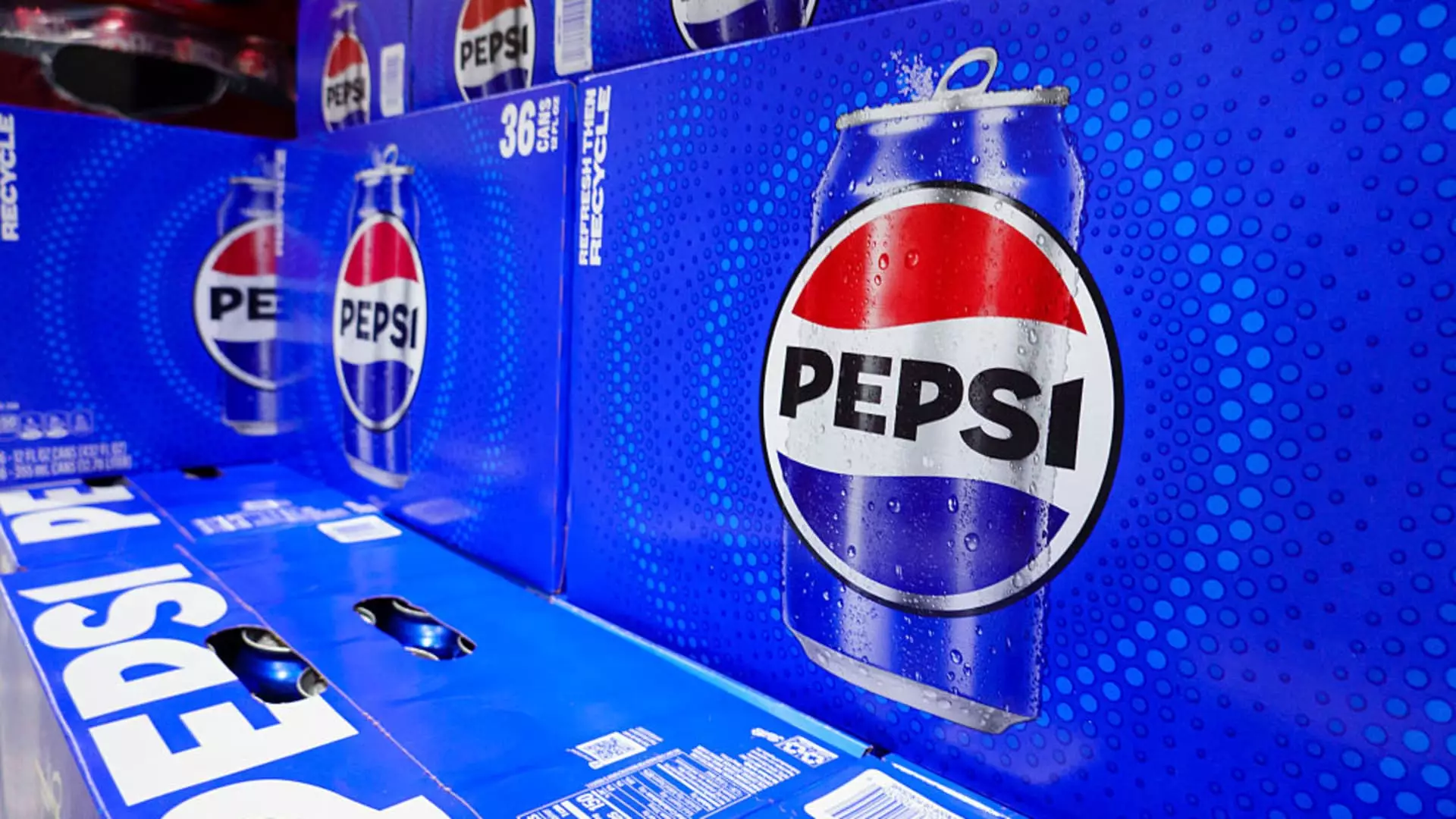PepsiCo’s recent earnings report presents a facade of resilience, but beneath the surface, a troubling reality emerges. While executives tout modest beats against expectations—adjusted earnings per share of $2.12 versus $2.03 predicted and revenues surpassing estimates—these numbers are merely superficial indicators of a company struggling to adapt. The truth is that Pepsi’s growth avenues are narrowing, especially amidst persistent declines in core markets. The company’s attempt to frame its current performance as a sign of strategic reset is misleading; the ongoing softness in demand reveals a fundamental vulnerability in Pepsi’s business model.
Though the company managed a 1% increase in net sales and a slightly better-than-expected organic revenue growth, these figures are marginal. The 1.5% volume decline in North American food and stagnant beverage volumes underscore a wider issue: consumers are moving away from traditional soda and snack products faster than Pepsi can pivot. The slight uptick in product diversification—leaning into healthier snacks and multicultural offerings—can only do so much to cover the cracks in its core franchise. The optimistic talk about rebounding consumption masks an underlying erosion of brand loyalty and consumer interest in processed foods and sugary drinks long favored by Pepsi.
Strategic Shifts or Superficial Fixes?
Pepsi’s leadership claims that strategic initiatives—such as prioritizing healthier snack options, relaunching iconic brands like Lay’s and Tostitos to emphasize their potatoes and corn, and optimizing in-store placement—will turn the tide. But in reality, these efforts seem reactive rather than groundbreaking. The decision to close manufacturing plants and cut costs demonstrates an urgent attempt to shore up margins, not a move towards sustainable growth. The company’s focus on boosting profit margins through efficiency measures is a sign of pressure, not strength.
Further, the leap into protein-centered products and multicultural options signifies a recognition of evolving consumer preferences, but it’s also an acknowledgment that Pepsi’s traditional business is faltering. Relying on such shifts risks superficial appeasement rather than genuine transformation. Moreover, the company’s evaluation of its marketing spend and reduced focus on traditional advertising suggests a company desperate to find new revenue streams without fully committing to long-term innovation. This kind of tactical trimming often backfires if it does not align with changing consumer behaviors.
Economic Headwinds and Market Realities
Pepsi’s cautious outlook reflects broader economic challenges that no amount of strategic repositioning can fully counteract. The company’s reaffirmation of flat or low single-digit organic revenue growth, coupled with the expectation of hitting its lower organic revenue target in the coming quarters, signals a recognition of diminished consumer spending power. Tariffs, inflation, and economic volatility—mentioned dismissively by Pepsi executives—are not just external obstacles; they are fundamental threats to revenue stability.
The decline in North American beverage volumes, despite some positive spin about improving domestic business, suggests that the market for carbonated drinks continues to shrink, driven by health concerns and lifestyle changes. The fact that Pepsi Zero Sugar is one of the few bright spots speaks volumes: consumers are willing to make choices that align more with health consciousness, yet Pepsi remains heavily dependent on its traditional sugary product lines, which are increasingly losing favor.
Center-Left Reflection: The Need for Genuine Transformation
From a center-wing liberal perspective, Pepsi’s current approach exemplifies a company responding to market shifts with superficial measures rather than meaningful innovation. The emphasis on cost-cutting, repositioning, and branding relaunches, while necessary, are insufficient in addressing the deeper societal issues shaping consumer preferences. A genuine strategy would involve progressive investments in transparency, sustainable sourcing, and health-oriented innovations that go beyond just relabeling and relocating products.
If Pepsi wants to reignite growth, it cannot simply lean on minor product tweaks and efficient logistics. It must confront the root causes of declining demand—namely, the public’s increasing awareness of health and environmental impact—and respond with proactive, socially responsible initiatives. This requires a shift from short-term financial metrics towards long-term stakeholder value, balancing profitability with societal good.
In the end, Pepsi’s current trajectory appears more like a defensive scramble rather than a confident stride into the future. The company remains tethered to a legacy of processed foods and sugary drinks that societal shifts are steadily eroding. Without authentic innovation and a commitment to societal well-being, Pepsi’s “recovery” is unlikely to withstand the mounting pressures of a rapidly changing consumer landscape.

